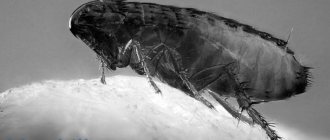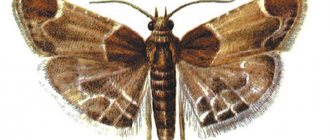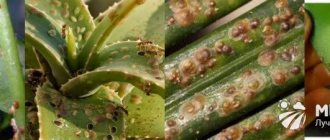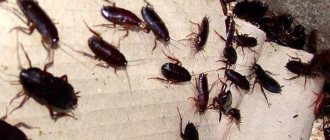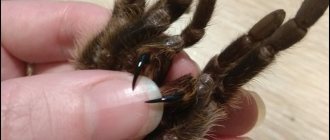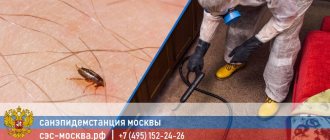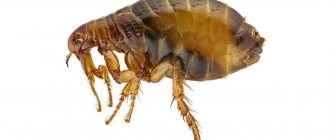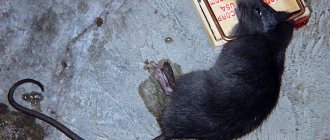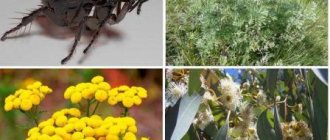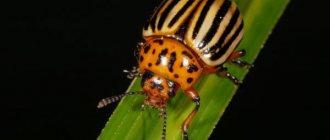Fleas are a common problem for ferrets. This is a small black insect, a parasite, very dexterous and sneaky, which can easily settle on an animal. The insect bites through the skin of an animal or a person, it feeds on blood. A ferret can pick up these unpleasant residents when interacting with stray dogs and cats that are carriers of the infection. Or just outside, lying in the grass.
Symptoms of flea infestation in ferrets
Ectoparasites appear in ferrets of any gender and age. They bite through the skin, using blood for nutrition and activation of reproduction. Depending on the sensitivity of the animal’s skin to painful bites, it may experience:
- Itching. The main, most pronounced symptom, manifested in varying degrees of intensity, which depends on the number of fleas on one animal. The pet begins to lick itself, bite, scratch and chew its fur.
- Formation of papules. At the sites of parasite bites, formations appear, scratching of which leads to the formation of scabs.
- Baldness. When there are a large number of insects, the animal experiences hair loss in areas of varying sizes.
- Increased emotionality and irritability. If a ferret has fleas in its fur, it becomes restless and overexcited.
The diagnosis is established not only by visual examination and taking into account symptoms; to confirm it, a scraping is taken from the affected areas of the skin, examination of which confirms infection with bloodsuckers. Visual inspection helps to identify fleas; special attention should be paid to the areas between the shoulder blades, where parasites most often accumulate in thick fur.
The insects leave small black feces among the hairs on the skin that can be seen with the naked eye. Ulcers and small red bite marks are also clearly visible.
Ectoparasites
This section includes fleas and diseases caused by parasitizing microscopic mites:
- sarcoptic mange,
- notoedrosis,
- demodicosis,
- otodectosis.
The first two diseases, otherwise called pruritic scabies, are caused by parasitism of intradermal scabies and have been recorded in a negligible number of cases in domestic ferrets.
Demodicosis is also quite rare in ferrets.
Otodectosis, caused by parasitic ear mites, is considered a fairly common disease among choreas. A sick animal experiences severe itching in the ears and head, and later scratching occurs in these areas. Earwax becomes black or dark with black spots. Ulcerations of the inner side of the auricle are observed. When secondary microflora joins, otitis media, tumors, and abscesses may occur.
The diagnosis is made exclusively in the laboratory by examining skin scrapings. Treatment includes a number of measures and should only be carried out by a specialist.
Fighting fleas is not difficult, since it does not require special treatment measures, and a wide range of drugs for each type of animal is available in pet stores and veterinary pharmacies. Typically, these preparations are sprays, liquids or special shampoos for bathing.
Causes and harm of infection
Fleas can be transmitted to an outdoor ferret from other infected animals or from the external natural environment where they live and breed. They can also be brought home by owners on clothing or the soles of shoes from an infested room, such as a basement or other building where insects exist.
Parasitosis caused by fleas in ferrets may not appear immediately, since the parasites spend only a certain amount of time on the animal, sufficient to feed, and their main habitat and oviposition is the environment. Only when the number of insects increases significantly can symptoms of infestation be noticed. Anemia develops in pets, body growth slows down in young animals, and the quality of fur deteriorates. In the ferret group, fleas are active carriers of the Aleutian disease virus, which leads to the death of animals.
Allergy
Ferrets, like most animals, can have allergies. If your pet itches and bites itself, and you suspect that it has allergies, you should remove all possible pathogens from the cage and move the cage to another location.
Review your pet's diet. In case of an allergic reaction, the animal may develop inflammation, and the ferret may also itch and sneeze.
The causative agent of an allergy can be almost anything:
- accessories in the cage;
- feed;
- medicines;
- detergents that you use to clean your pet’s home;
- litter;
- products that you use while in the same room with the animal (for example, hairspray, eau de toilette).
To eliminate the problem, simply remove the allergen from your ferret's environment/food.
Methods of controlling parasites
If fleas are found on a ferret, what should the owner do and how to get them out without ruining the pet’s beautiful fur? If insects are found, you should immediately begin to destroy them. If there are other animals in the house, they also need to be examined, treated, and the necessary medical procedures performed.
There are no narrow-profile drugs for killing fleas specifically on ferrets, just as there are no ferret fleas.
Cat fleas live on pets, and to combat them, experts recommend using products for dogs and cats. The veterinarian, depending on the number of bloodsuckers and the degree of development of the disease, selects the optimal drugs to help kill insects with minimal harm to the pet.
Some types of products are strictly prohibited for use on ferrets. Do not use flea collars, phosphates, sprays or formulations containing permethrin. You can repel parasites from your pet's cage by adding some cat litter containing cedar wood shavings to the bottom of the cage. It does not cause poisoning or allergies in animals and is absolutely safe.
Prevention
Bathing is an excellent method to avoid various parasites and infections. Up to 4 months, bathing is a physiotherapeutic procedure to strengthen muscles and bones. As an adult, you can bathe your ferret for up to 20 minutes a day. It is not necessary to leave it in the water during this entire period; if the animal is tired and begins to drown, it should be pulled out of the bath.
The most favorable temperature for your pet is 40°C, the main thing is that the animal does not become hypothermic. It is also useful to comb the animal with a special or regular comb. It is necessary to do flea treatment throughout your life. They can only be carried out if the animal is in good health, that is, with normal urination, appetite and activity. Flea medications can be used on ferrets from the 22nd day of life.
Fleas do not always leave traces of their vital activity on the body of an animal, because they only feed on it. Insect eggs can be found on carpets and rugs.
Flea medications
Any flea remedy for ferrets, available in various forms: powders, repellents, sprays, kills only adult fleas. Proven high-quality preparations for removing blood-sucking insects:
- Frontline.
Recommended by veterinarians to combat fleas and their larvae. It is produced in the form of a spray and drops, and has different dosages. Flea drops are applied with precise movements using a cotton swab or pipette onto the pet’s fur and skin, after which the active substances penetrate the subcutaneous layer and sebaceous glands.
The active substance, fipronil, has a detrimental effect on the nervous system of fleas and leads to their death within 24 hours. It works for a long time and ensures the destruction of new individuals. Treatment with the spray should be carried out in a ventilated room, holding the bottle 20 cm from the animal and directing the spray of the drug against the growth of the hair. Avoid contact with eyes and mucous membranes.
The product can be used to treat the ferret's cage and bedding.
- Stronghold.
The active substance in its composition is selamectin. A yellowish or colorless transparent solution is packaged in pipettes, distributed into 3 pieces in a blister, and applied externally. The medicine is used in accordance with the attached instructions. It is applied to the ferret's withers once a month, during which time it kills adults and protects against re-infection.
- AdvantageR.
A means for the destruction of adults and larvae by blocking the nervous system of parasites. It comes in the form of a liquid that is rubbed into the animal’s skin once a month.
Skin diseases
- Neoplasia (neoplasms) are inherent in all animals and ferrets are no exception. The development of some skin tumors is accompanied by itching, scratching and baldness of the affected area.
- Eczema. A non-infectious skin disease characterized by peeling and weeping of the affected skin. It has a number of causes. It is very difficult to treat.
- Fungal diseases. They are caused by the development of pathogenic fungi in the skin and are clinically expressed in the appearance of expanding areas of baldness and inflammatory processes in the skin (swelling, redness and peeling). These diseases include trichophytosis and microsporia. The diagnosis is made by microscopy of scrapings from the affected areas of the skin. Treatment is specific, depending on the pathogen.
Sources
- https://ZelenPlaneta.ru/blohi/kak-vyvesti-bloh-u-horka.html
- https://klopkan.ru/blohi/blohi-u-horka/
- https://vetugolok.ru/ehkzotika/horki/cheshetsya.html
- https://kselu.ru/zhivotnye/horki/lyseet-hvost.html
- https://lovelyhamster.ru/horek/pochemu-khorek-cheshetsya/
[collapse]
Reasons for scratching in ferrets
There are many reasons why a ferret itches if there are no fleas:
- Shedding. In spring and autumn, the animal sheds and itches intensely.
- After sleep. Waking up, the pet selflessly begins to itch.
- Allergy. Inexpensive foods may contain allergens that cause itching and scratching in ferrets.
- Wrong diet. The animal may itch due to insufficient amounts of animal fats in the food received.
A cheerful, active ferret with thick shiny fur, in the absence of diseases, becomes a favorite pet and delights the household.
Loss of hair on the tail and body, accompanied by severe itching of the skin
As a rule, when the ferret wakes up, he begins to groom himself after waking up, and then begins to play. If the animal suddenly stops playing, exploring the surrounding space and begins to itch, this is a signal of possible health problems, especially in cases where this is accompanied by loss of fur.
First of all, it is necessary to examine the ferret's integument for the presence of ectoparasites - lice, ticks, lice eaters, fleas. These uninvited guests not only irritate your pet’s skin, but are also carriers of dangerous infectious and invasive diseases.
To get rid of ectoparasites, ferret fur is treated three times with insectoacaricidal preparations at seven-day intervals. After this course of treatment, medications are applied that repel external parasites.
Loss of fur with severe itching indicates the presence of exoparasites in your pet.
Today, there are a large number of such drugs on the market with various commercial names, so when choosing, you should pay close attention to which active ingredient is used in the product you are purchasing. Better yet, if you notice that your ferret is itching too often and intensely, consult a veterinarian.
